Revising Spinoza
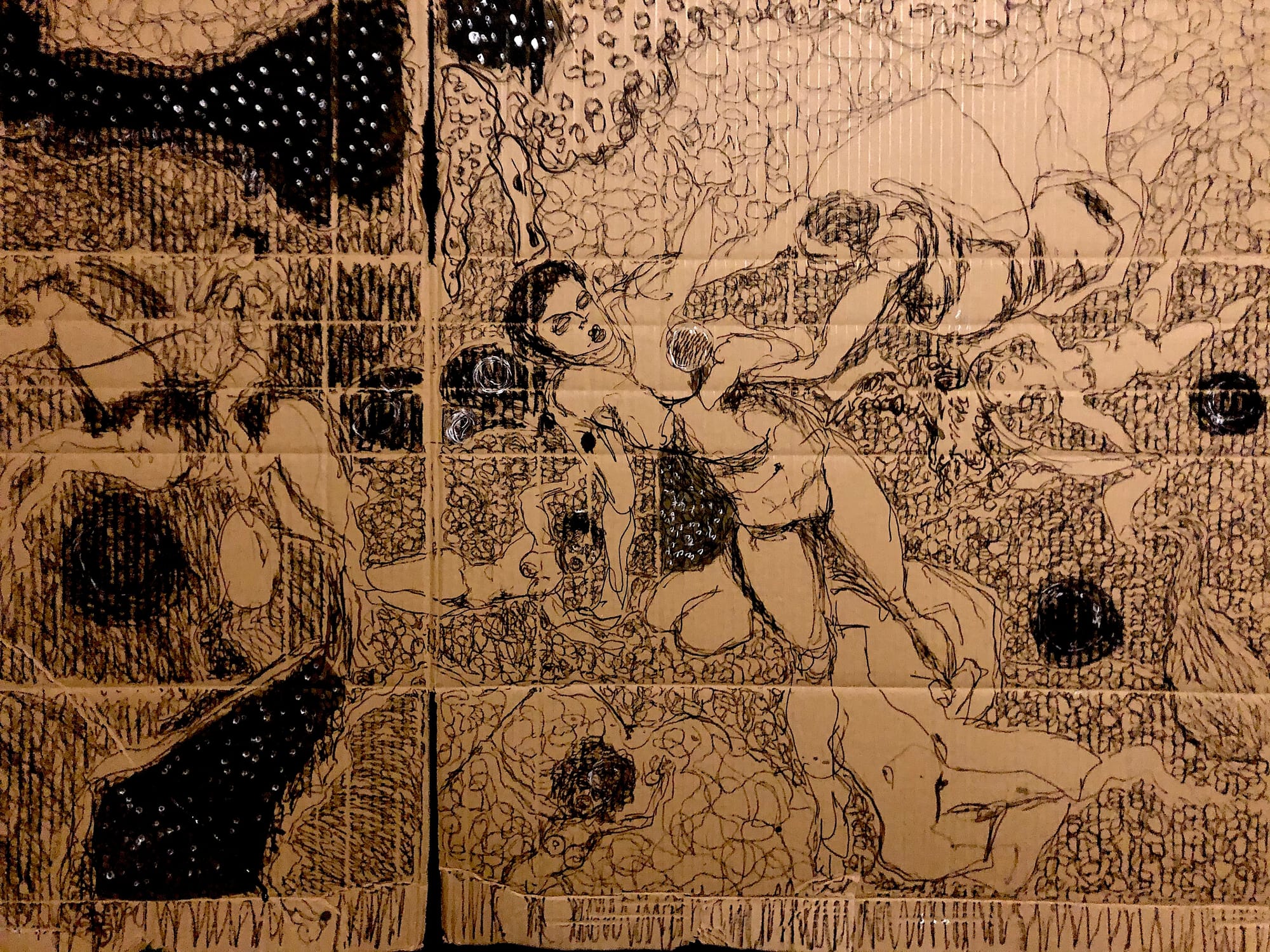
Interview by Richard Marshall

'I argue for a realist interpretation of Spinoza on which the metaphysical order mirrors an epistemic or conceptual order but is neither reduced to nor grounded in it. Rather, the melding of epistemic and metaphysical notions is just what you’d expect from a rationalist and a realist: the world has a certain structure and reason is up to the task of representing that structure.
'First of all, when a philosopher holds a substantive and interesting position they usually say so. I don’t believe in hidden doctrines only darkly hinted at. And Spinoza never comes out and says that he is an idealist or holds any of the positions that idealist interpreters saddle him with.'
'Spinoza thinks that such finite creatures express God’s ontological self-sufficiency by striving to persevere in their existence. This doctrine is absolutely crucial for Spinoza’s philosophical project. It is the fundamental principle of his psychology. Human motivation and action can be understood as being directed toward self-preservation.'

Martin Lin works primarily on Early Modern philosophy, with emphasis on the rationalists. Alternatively, one could say he works on metaphysics with the rationalists as his principle interlocutors. Here he discusses his revisionary interpretation of Spinoza's metaphysics, discussing Spinoza on substance and mode, reason and being, why the idealist reading is wrong, panpsychism, why the Principle of Sufficient Reason isn't all that important a tool for Spinoza, attributes, and striving for self-preservation as a bridge between his metaphysics and the rest of his philosophy.
3:16: What made you become a philosopher?
Martin Lin: When I was a little kid, I used to say that I wanted to be a doctor of philosophy when I grew up. I said it because it made grownups laugh. Of course, now I know that being a doctor of philosophy doesn’t entail being a philosopher, but my confusion back then ran so deep that it’s possible that I was expressing a desire to be a philosopher. At the same time, probably like a lot of the philosophers you interview, I really was, unbeknownst to me, interested in genuinely philosophical questions. People often think philosophical questions are childish, and, I suppose, in a way they are. The really good ones are the ones that children spontaneously ask: is anything really good and bad apart from our thinking it so? How do I know that your experience of green isn’t just like my experience of red and vice versa? That sort of thing. When I got to college, I enrolled in an introductory class in philosophy and loved it and kept with it. My philosophical interests back then ran to continental philosophy—French post-structuralism and all that. A lot of those guys seemed to think that Spinoza was somehow foundational, so I thought that if I wanted to understand, say, Deleuze, I had to understand Spinoza. So, I read Spinoza and realized that I found him a lot more interesting than Deleuze. The rest is history.
3:16: You’re a Spinoza expert and you’ve interpreted his metaphysics in a new way. Can you explain this, perhaps giving an example of how Spinoza handles substance and mode?
ML: One of Spinoza’s most famous doctrines is that there is only one substance, God or nature, and that everything else—shoes and ships, cabbages, and kings—are modes of that one substance. This is called, “Spinoza’s substance monism.” I think that this doctrine has been pretty badly misunderstood. People tend to think that he meant that every particular thing stands to God or nature as a property stands to a subject in which it inheres and of which it is predicated. And then they debate things like, does Spinoza think that particular things—like, for example, my body—are universals or are they particular accidents—what metaphysicians nowadays call tropes. But on the face of it, Spinoza couldn’t have seriously meant anything like that.
What could it possibly mean to say of a particular thing that it is a property, whether universal or not? I mean, that a particular thing is a particular rules out that it’s a universal, but that it’s a thing surely rules out that it’s any kind of property, particular or not. It’s not just that particular things are particular…they are also things . To say that particular things are properties of any substance is to commit a category mistake. (Ed Curley noted this problem back in the 60s but his proposed solution, which is different from mine, didn’t really catch on.)
Okay, so what is a mode if not a property? My own view is that it’s a certain sort of dependent object. Such objects are completely familiar to common sense. Consider a wave on the ocean. What is it? It’s not a substance. It’s not a free-standing and independent part of the world. It obviously depends on the ocean. It wouldn’t exist if the ocean didn’t exist—although the ocean could exist without its waves. The wave isn’t anything over and above the ocean oscillating in a certain way. But the ocean insofar as it oscillates in a certain way, isn’t just the ocean. Different things are true of the ocean insofar as it oscillates and the ocean in itself. For example, a wave might have been caused by an earthquake without it being the case that the ocean was caused by an earthquake. So, when Spinoza says that all particular things are modes of God or nature, he is saying that all particular things—the shoes, the ships, etc.—stand to God or nature as waves stand to the ocean. We are all just waves on the ocean of nature.
Not only is such a view intelligible, it strikes me as being pretty plausible. Scientists today often think of particles as excitations of the quantum field. That’s pretty close to Spinoza’s substance monism. All finite particular things (the particles and the larger things they make up) are modes of the one substance (the quantum field). Now Spinoza further thought that nature can be conceived in two different ways: as physical or as mental. Thus, our bodies are waves on the oceans of the physical and our minds are waves on the oceans of thought.
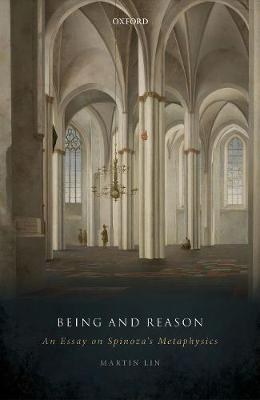
3:16: On your reading Spinoza connects reason and being. First, what are we talking about when Spinoza talks about being – and for that matter, reason too?
ML: Without getting bogged down in the minutiae, let’s just say that, although ‘being’ doesn’t have a precise technical definition for Spinoza, in many contexts, he means something like reality or existence in general. Being is what gets divided up into the categories of substance and mode. ‘Reason’ too has a number of related meanings in Spinoza. He sometimes uses it to mean an explanation, sometimes to mean knowledge of the most general properties of things and the things that follow from those properties, and sometimes it means the way that God knows the world—which we can share insofar as we have “adequate ideas.” So, when I raise the question of the relation of being to reason, I mean the question of how reality relates to explanations and representations of it.
This question is important because when Spinoza addresses metaphysical questions—for example, what is there and how is it structured—he often uses epistemic or cognitive notions. For example, when he defines substance, he says it is what inheres in and is conceived through itself. Thus, the definition mixes a metaphysical notion—inherence—with something either logical or psychological—the conceived through relation. Elsewhere, he says that if something exists then there is a reason why it does, and if it doesn’t, then there is a reason for that too. Here something metaphysical—existence/nonexistence—is subject to what might be an epistemic condition—a reason. This is why some philosophers have thought that Spinoza must be some kind of idealist or anti-realist. In other words, he must think that metaphysics must be somehow reduced to or grounded in something epistemic or conceptual.
I think this is a mistake and argue for a realist interpretation of Spinoza on which the metaphysical order mirrors an epistemic or conceptual order but is neither reduced to nor grounded in it. Rather, the melding of epistemic and metaphysical notions is just what you’d expect from a rationalist and a realist: the world has a certain structure and reason is up to the task of representing that structure.
3:16: Could you say more about why you reject the idealistic interpretation of Spinoza?
ML: Yes. First of all, when a philosopher holds a substantive and interesting position they usually say so. I don’t believe in hidden doctrines only darkly hinted at. And Spinoza never comes out and says that he is an idealist or holds any of the positions that idealist interpreters saddle him with. Secondly, when you look carefully at the arguments that commentators give to show that Spinoza has idealistic commitments, they don’t hold up. But I can only back this up by taking up specific arguments. The devil is in the details.
I’ll give you just one example. Some recent commentators have said that Spinoza grounds causation in conception, by which they mean something like facts of the form x causes y are grounded in facts of the form y is conceived through x. The reasons they give for this is that Spinoza uses the notion of conception—but not causation—in his definitions of his fundamental ontological categories and then infers from those definitions—and some additional premises—general facts about the kinds of causal dependences that exist between the entities that belong to those categories. For example, that modes causally depend on the substances in which they inhere. But this would only show that facts about causation are reducible to or grounded in facts about conception if we made two assumptions.
First, the features that enter into definitions of the fundamental categories are ipso facto more fundamental than those that don’t. Second, if less fundamental facts are inferred from a set of facts that include more fundamental facts, then the less fundamental facts are grounded in the more fundamental facts from which they are partially inferred. The problem is that the first is dubious and the second is false. The first is dubious because ontology may not—and in my view does not—exhaust metaphysics. So, there might be fundamental predicates that are not used in formulating the definitions of the ontological categories. Let me explain. Take a toy example of an ontology with a single category: object. Suppose that we define an object as something that is characterized but does not characterize. Thus, our ontological categories are defined using a single predicate: ‘characterizes’. But this is compatible with there being fundamental predicates other than ‘characterizes’. For example, it is compatible with ‘has negative one elementary charge’ or ‘has mass m ’ being fundamental predicates. You can’t just read the fundamental predicates off of the definitions of the ontological categories.
Now let’s consider the second assumption: that if you infer something from some facts that include some fundamental facts, then what you infer is grounded in those fundamental facts. This is false and it is subject to counterexample. For example, I can infer from the facts that if Paris is not the capital of France, then electrons are not negatively charged and that electrons are negatively charged, that Paris is the capital of France. But, obviously, that Paris is the capital of France is not grounded in the fact that electrons are negatively charged. Inferential connections alone are not going to tell us anything about what grounds what. Obviously, other arguments have to be treated separately, but it turns out, when you examine them closely, they too don’t stand up to scrutiny. This combination of Spinoza’s never bothering to mention that he is an idealist and the lack of persuasive argument to the effect that he has idealistic commitments, leads me to a realist interpretation.
3:16: Is he a panpsychist in some way? Doesn’t his metaphysics of desire which claims that all things are striving suggest something along panpsychist lines?
ML: Yes, I think Spinoza is a panpsychist, but it’s not because he holds that everything strives for self-preservation. While it’s true that Spinoza says that everything strives for self-preservation, he also thinks that things can be goal-directed without being guided by mental representations of that goal. Everything can be conceived under both the attribute of thought and the attribute of extension—which is to say everything can be thought of as both mental and physical. Insofar as things are conceived of as physical, their behaviors, including their striving for self-preservation, can be explained in purely physical terms, which obviously excludes mental representation. This is why the claim that everything strives for self-preservation is the wrong place to look for the basis of Spinoza’s panpsychism.
Rather, I think he’s a panpsychist because he holds that God is omniscient and minds are just God’s ideas of bodies. For example, your mind is just God’s idea of your body. But God doesn’t only have ideas of human bodies or the bodies of other complex animals. He also has ideas of every single body. There is nothing special about God’s ideas of very complex bodies that qualify ideas of them as minds and that would distinguish them from ideas of simpler bodies. Complexity comes in degrees and there isn’t much point in drawing an arbitrary line somewhere. So, Spinoza concludes that there are minds everywhere in nature.
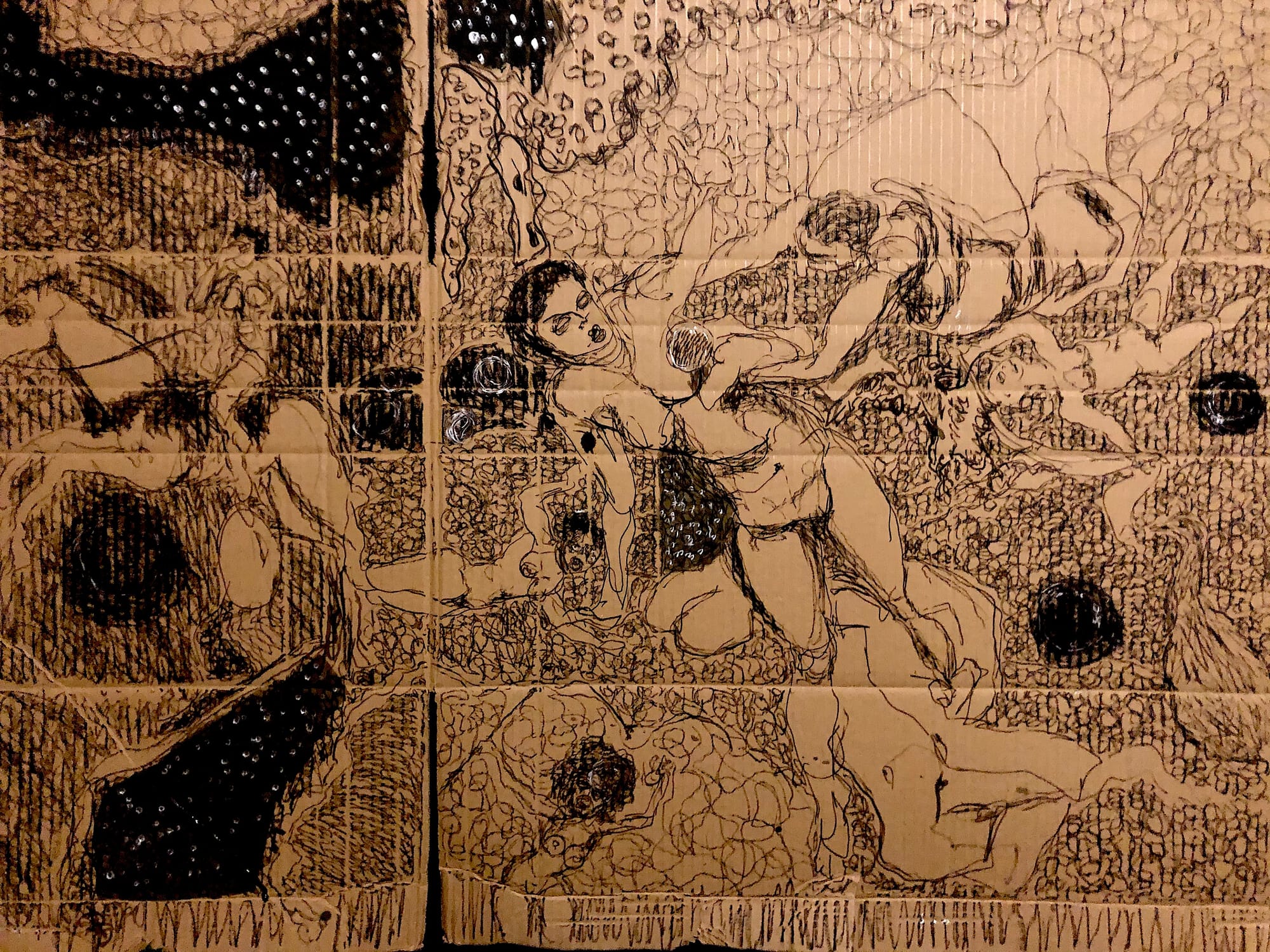
3:16: Why do you say it’s wrong to see his Principle of Sufficient Reason as the key to his work?
ML: Well, to begin with, I would refer back to the methodological principle I mentioned earlier: philosophers generally don’t have well worked out reasons for their doctrines without telling us about them. And while Spinoza does believe a version of the Principle of Sufficient Reason or PSR—one that is limited to facts about existence and nonexistence—he uses it only once, in the first alternative demonstration of the existence of God. So, I think that, at least on the face of it, the only role that the PSR plays in Spinoza’s system is to give us a reason to think that God exists. If it were the key to his work, you’d expect to hear a lot more about it.
Compare his treatment of the PSR to that of Leibniz, who coined the term—the words ‘Principle of Sufficient Reason’ don’t actually occur in Spinoza’s text—and who is constantly proclaiming that the PSR is one of the two great principles of all of our reasoning and that its application is the key to all kinds of knowledge. In contrast, Spinoza tucks his principle into an alternative demonstration and uses it just once, to prove the existence of God. Despite Spinoza’s relative reticence about the PSR, there is a trend in Spinoza scholarship to claim that the PSR is implicitly playing all kinds of roles behind the scenes. But this is largely an interpretative fantasy. (Full disclosure: I myself was once one of those fantasists, but I’ve since seen the light.) If you look at the details of these alleged behind-the-scenes roles, they don’t ever pan out.
Now, I’m not saying that Spinoza doesn’t think that the world is an intelligible place and that reason can’t deliver substantive metaphysical truths. He clearly does. He is both an epistemic and a metaphysical rationalist. But he doesn’t use the PSR is the primary tool for discovering those truths and there is no evidence that he thinks that it grounds many of his metaphysical doctrines.
3:16: You read his understanding of an attribute differently from standard readings too don’t you? What’s the interpretation you don’t agree with and what do you replace it with?
ML: The nature of the attributes is one of the most difficult issues for understanding Spinoza. One way of looking at is through the lens of the mind-body problem. With respect to the mind-body problem in the seventeenth century, there are at least two big questions. One is: how many different kinds of substances are there? The other is: how many different substances are there of a given kind? Descartes’s answers, which basically set the agenda for philosophers who come after him, are that there are exactly two kinds of substances, minds and bodies, and there are a great many substances of each kind. In contrast, Spinoza appears to say that there is exactly one substance of any kind but it falls under infinitely many different kinds. In other words, it seems like he endorses some kind of substance monism combined with a radical property pluralism. But it turns out that its more complicated than that.
I’ve been speaking of “kinds of substances” but Descartes’ and Spinoza’s technical term is ‘attribute’. Thus, Spinoza’s position is that there is one substance with infinitely many attributes. But Spinoza’s definition of the term ‘attribute’ has some odd features that have really bothered commentators. He says that an attribute “is what the intellect perceives of a substance as constituting its essence.” This is sometimes taken to mean that an attribute is the essence of a substance. But then why does Spinoza drag intellectual perception into it? Is the intellect perceiving the attributes to be something that they’re not? (To see why the ‘perceived as’ locution might seem to imply falsity, compare: in the Müller-Lyer illusion, two lines of equal length are perceived as unequal.) Some have thought that Spinoza was trying to say that we perceive a substance as having infinitely many essences but, in reality, it does not. But this is problematic because Spinoza is a rationalist who thinks that the intellect always perceives truly. This leads many commentators to conclude that the one substance really does have many attributes or essences. But how can something have more than one essence? Does that even make sense?
More puzzling still, Spinoza claims that, just as the one substance has infinitely many attributes, so too are human minds and bodies the same thing conceived of in two different ways. Even if a single substance could have multiple essences, why should we think that the various modes of these essences are numerically identical? Because of questions such as these, Spinoza’s treatment of the attributes is very mysterious.There are two main proposed solutions to the mystery of the attributes, both of which are wrong. The first is that the attributes are illusions—they are projections of the intellect onto a substance. There are a couple of motivations for such an interpretation. The first is the problem I already mentioned. Why does Spinoza define the attributes in terms of what the intellect perceives of a substance as constituting its essence? The answer, according to this first school of thought, is that the one substance, God or nature, doesn’t really have infinitely many attributes, the intellect just perceives it as such. The other motivation is that if Spinoza has a traditional conception of God as simple, then he can’t have infinitely many attributes. That would introduce too much structure. So, the infinity of attributes imputed to substance by our intellects is just our finite and human way of grasping something that cannot really be grasped by discursive reason. The problem with this interpretation is that Spinoza thinks that the intellect always perceives truly. Because the intellect perceives the attributes, it must be the case that substance really has them.
The second school of thought insists that the attributes are real, but what are they? One prominent answer is that they are themselves substances—Spinoza does say that the attributes are in and conceived through themselves—and that God or nature is the global super-substance composed of all of these lesser substances. Another answer is that they are the most general properties possessed by the one substance. God or nature has infinitely many of these maximally general essential properties. The problem with both versions of the claim that the attributes are real is that they cannot make sense of Spinoza’s claim that minds and bodies are numerically identical—they are one and the same thing conceived of in two different ways. Remember, Spinoza thinks that minds are modes of the attribute of thought and that bodies are modes of the attribute of extension. If the attributes are substances, how could modes of two different substances be numerically identical to one another? The problem is no less serious for the interpretation of attributes as essential properties. Modes necessitate their attributes and no other. For example, bodies necessitate extension but not thought and minds necessitate thought but not extension. But if bodies and minds are identical, then bodies and minds both necessitate thought and extension.
By my lights, the correct interpretation is that the one substance has a single essence but the intellect conceives of it using infinitely many conceptual languages. When I think about things as bodies, I am using the conceptual language associated with extension. When I think about that very same thing as a mind, I’m using the conceptual language associated with thought. When I represent things truly, I’m not thinking different things about the world when I think of it as extended or thinking. I’m thinking the same things but in a different way—using different conceptual languages as it were. Unlike the traditional view according to which the attributes are projections of the intellect, I don’t think that the intellect errs when presenting things under the guises associated with thought and extension. They are both perfectly accurate ways of representing the world. And unlike the second traditional interpretation according to which the diversity of attributes corresponds to some kind of metaphysical diversity, I think that there is only a distinction of reason, and not a metaphysical distinction, between them.
3:16: I mentioned it earlier so what is Spinoza's claim that all things strive for self-preservation and how important is it for his system?
ML: Spinoza believes that absolutely every finite thing—not just plants and animals but also stars, rocks, and even tiny particles of matter—strive for self-preservation. This means that their behaviors are goal-directed. They aim at self-preservation. As I said to you earlier, this isn’t because he is a panpsychist who thinks that everything has a mind and, in virtue of that, goals. He’s more of a throwback to the old Aristotelian picture on which things can be oriented toward an end or goal without being guided by mental representations. (Don Garrett makes this point in his excellent paper “Teleology in Spinoza and Early Modern Rationalism.”) Rather, he thinks that all things strive for self-preservation because the essence of each finite thing expresses, in some sense, the infinite essence of God. They are like “little Gods” or “Gods-in-miniature,” to borrow some Leibnizian turns of phrase.
Just as God’s essence is his power and the ground of his existence so too the essence of finite things is a power that explains their existence. But the finite expressions of God’s power are limited, that is, finite, and so they don’t explain their existence all by themselves but only in conjunction with other things. Spinoza thinks that such finite creatures express God’s ontological self-sufficiency by striving to persevere in their existence. This doctrine is absolutely crucial for Spinoza’s philosophical project. It is the fundamental principle of his psychology. Human motivation and action can be understood as being directed toward self-preservation. Moreover, he analyzes virtue as successful striving for self-preservation, so it’s at the heart of his ethical philosophy. Moreover, he thinks that the state arises because people seek to promote their continued existence, so it’s at the heart of his political philosophy as well. It’s the bridge between his metaphysics and the rest of his philosophy.
3:16: And finally, are there five books that you could recommend to the curious readers here at 3:16 that will take us further into your philosophical world?
ML: The books that have been most important to me philosophically are those written by Spinoza, and although he didn’t write many books, the works of Leibniz.
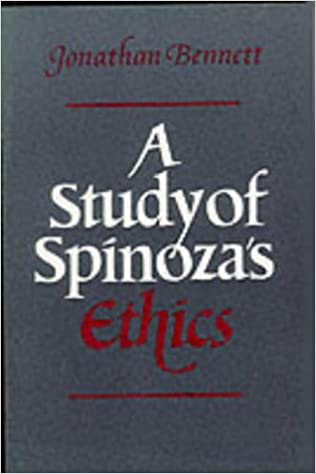
But with respect to more recent books, Jonathan Bennett’s A Study of Spinoza’s Ethics is one of my all-time favorites. Some people are put off by what they perceive to be Bennett’s high-handed tone, but I find that I can always learn something by reading him on Spinoza, even if, in the end, I want to disagree with him.
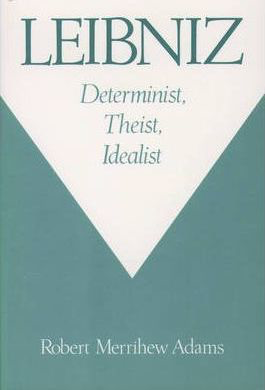
Bob Adam’s Leibniz: Theist, Determinist, Idealist is mind-blowingly good.
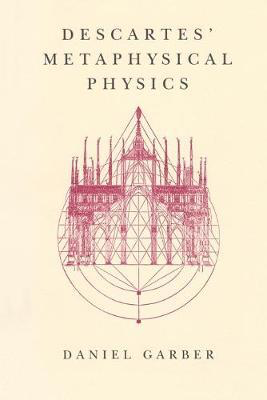
My old teacher Dan Garber’s Descartes’s Metaphysical Physics is packed with philosophical and historical excellence.
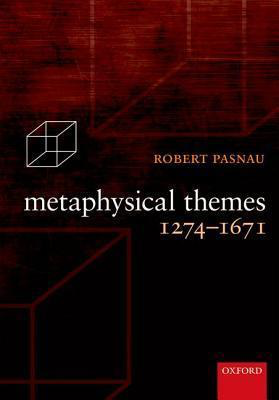
A more recent book that has been important to me is Bob Pasnau’s Metaphysical Themes: 1274-1671 .
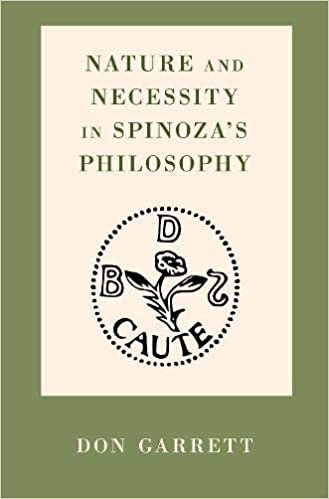
Don Garrett’s Nature and Necessity in Spinoza’s Philosophy collects a number of his classic and groundbreaking papers on Spinoza.

ABOUT THE INTERVIEWER
Richard Marshall is biding his time.
Buy his second book here or his first book here to keep him biding!
End Times Series: the index of interviewees
End Time series: the themes
Huw Price's Flickering Shadows series.
NEW: Steven DeLay's Finding meaning series
NEW: Joseph Mitterer's Beyond Philosophy serialised weekly